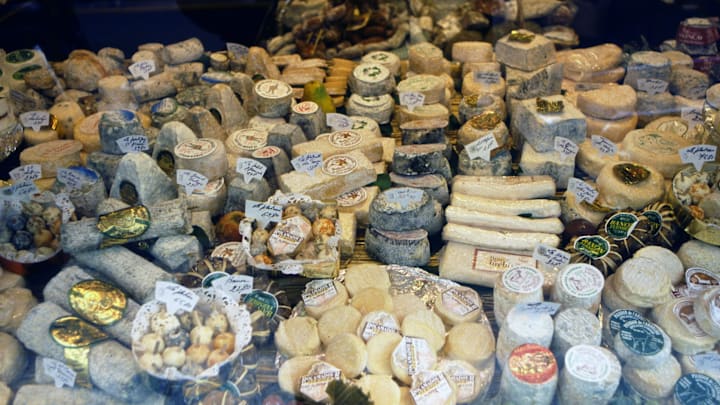The Musée du Fromage sounds like a stately old French establishment that’s been around for at least a century or two. That’s not the case. Not only is it brand-new—opened just last month in Paris—but, according to Smithsonian Magazine, it’s France’s first museum devoted to cheese.
The building itself is old: a 17th-century stone edifice not far from Notre-Dame Cathedral. Inside, you’ll find everything a quality food-centric museum should have. There’s an exhibit centered on cheese and cheesemaking, an actual working dairy where you can watch the cheesemaking magic happen, a taste-testing station that needs no explanation, and a gift shop teeming with dairy products. Entry is free for farmers and agricultural students, €20 (roughly $22) for adults, and €13 (roughly $14) for kids.
The whole endeavor was founded on the passion of Pierre Brisson, whose winemaker parents endeared him to dairy at an early age. “My father would take me to the cheesemonger every Sunday after Mass,” he told the Guardian. “I was at the height of the display and would look at all the marvelous cheeses in front of my eyes. I became fascinated by where they came from and how they were made.”
Brisson got his own start in the industry by attending France’s National Dairy Industries School and then establishing Paroles de Fromagers (meaning “words from cheesemakers”), an institution that offers professional training to cheesemakers as well as cheesemaking classes and cheese (and wine) tastings to laypeople.
One hope for the Musée du Fromage is that it’ll help reconnect the people of France to their rich cultural heritage of cheesemaking—an artisanal, rural, and highly variable craft that “depends on so many things, even the humor of the animals whose milk is being used,” Brisson told the Guardian. “You can make the same good cheese every day, and every day it will taste different. It just cannot be done industrially.”
By unlocking the secrets of cheesemaking, Brisson also hopes that the museum may inspire young people to pursue it as a career, shaking off the disillusionment of urban work and instead leaning into some good, old-fashioned farm labor. “More and more people will understand that the wealthy life that our parents and our grandparents [might have] had will not be accessible for us. And it’s time to come back to a more tough life,” he told Euronews. “But a tough life doesn’t have to be horrible. It could be a very happy life.”
